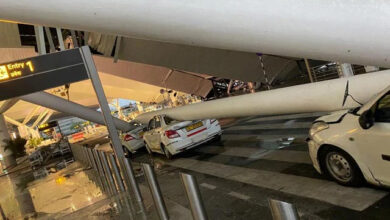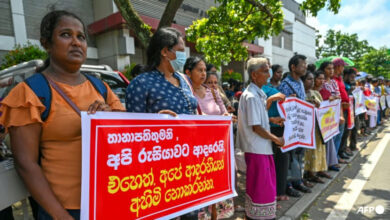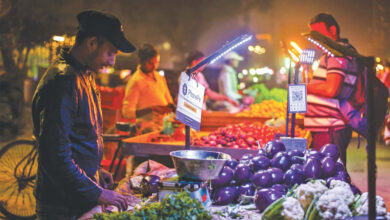Modi unveils 10-point call to action at outreach session of G7
"Building inclusive food systems that focus on the world's most vulnerable people, especially marginal farmers, should be our priority," Modi said, speaking in Hindi.

Tokyo : The world community should focus on building inclusive food systems that protect the most vulnerable, such as marginal farmers, as part of efforts to tackle the challenge of food security, Indian Prime Minister Narendra Modi said on Saturday.
He made the remarks while unveiling a 10-point call to action at an outreach session of the G7 Summit in Hiroshima that focused on pressing global challenges such as food and health security, developmental issues and gender equality. India is among eight guest countries participating in three outreach sessions of the summit hosted by Japan.
“Building inclusive food systems that focus on the world’s most vulnerable people, especially marginal farmers, should be our priority,” Modi said, speaking in Hindi.
“Global fertiliser supply chains have to be strengthened. Political obstacles in these have to be removed. And the expansionist mentality that is occupying fertiliser resources has to be stopped. This should be the purpose of our cooperation,” he said.
The global community can create a new model of natural farming as an alternative to using fertilisers, and the benefits of digital technology should be provided to every farmer in the world. “It should be our endeavor to separate organic food from fashion statement and commerce and connect it with nutrition and health,” he said.
In this context, Modi pointed to the UN declaring 2023 as the International Year of Millets, which can simultaneously address the challenges of nutrition, climate change, water conservation and food security.
The prevention of food wastage should be a collective responsibility as it is essential for sustainable global food security, he said.
In the realm of health security, Modi noted that Covid-19 had challenged the perspective of cooperation and help and said the availability of vaccines and medicines was linked to politics instead of human welfare.

“Introspection is necessary on what form of health security should take in the future,” he said, suggesting that establishing resilient healthcare systems should be a priority, and digital health and universal health coverage should be a common goal.
Participating in a second outreach session focused on clean energy and environmental conservation, Modi said one of the barriers to addressing challenges such as climate change and environmental and energy security is that “we view climate change only from an energy perspective”.
He added, “We should increase the scope of our discussion…to solve all these challenges…you have to change your behavior accordingly. In this spirit, India has created institutional solutions like Mission LiFE, International Solar Alliance, Coalition for Disaster Resilient Infrastructure, Mission Hydrogen, Biofuel Alliance and Big Cat Alliance for the whole world.”
India, he said, is moving towards the goal of net zero by 2070 and the country’s vast railway network will reach this goal by 2030. “Presently the installed capacity of renewable energy in India is about 175 GW. By 2030, it will reach 500 GW,” he said.
“Environmental commitments are not a hindrance but a catalyst in India’s development journey,” he added.


![Mumtaz Zahra Baloch, spokesperson for Pakistan's Foreign Ministry, says the country believes in constructive dialogue with the US [Courtesy of Pakistan Ministry of Foreign Affairs]](https://southasiancorrespondent.com/wp-content/uploads/2024/06/pak-1-390x220.jpg)

